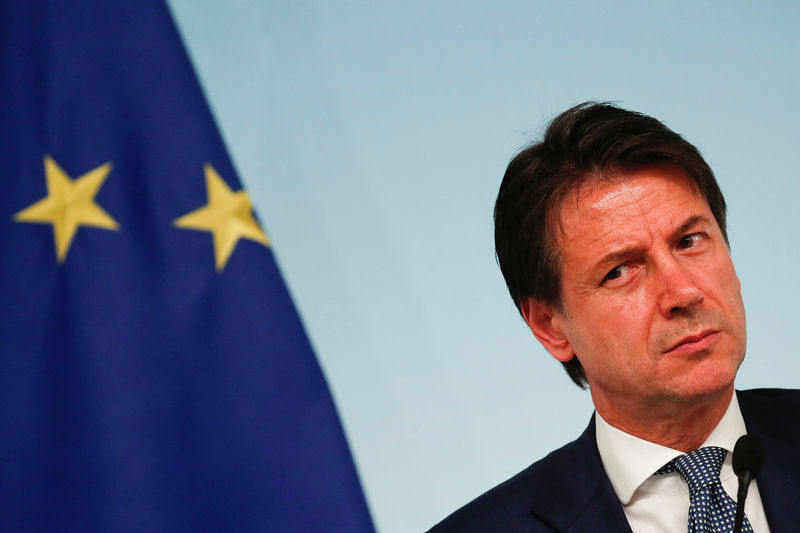(Bloomberg) -- Italy’s populist coalition hinted that it may eventually be prepared to temper its budget for next year as the European Union demands an explanation of its deficit plans.
Local media reported on Monday that the government could modify its spending if slower-than-expected economic growth weighs on revenue or its borrowing costs climb too far. Cabinet Undersecretary Giancarlo Giorgetti said in a weekend interview that the government can’t ignore the risk to banks posed by this month’s bond-market selloff and urged investors to consider its 2.4 percent deficit projection as a "ceiling" rather than an objective.
Italy’s government will say it seeks a dialogue with EU, newspaper Corriere della Sera said. But it also reported that Italy refuses to change the budget plan.
The Commission expressed “serious concern” about Italy’s budget plans in a letter on Thursday. EU Commissioners will discuss Italy’s budget at a meeting in Strasbourg on Tuesday and is likely to issue an unprecedented “negative opinion,” according to an EU official with knowledge of the preparations. That will mean Italy has three weeks to submit a revised budget.
Shift in Tone
While the party leaders who set the agenda for the coalition government have been reaping political gains from their attacks on the EU, investors are starting to see signs of rapprochement amid the populists noise.
Italian bonds jumped for a second day on Monday with the spread between Italian and German 10-year yields narrowing by as much as 20 basis points to 282 basis points. It touched a five-year high of 341 basis points during trading on Friday.
The rebound began late that day after Economic Affairs Commissioner Pierre Moscovici said he’s not seeking a conflict with Rome and doesn’t want to interfere in domestic politics. Giorgetti insisted that the administration will handle the budget issue with all due seriousness.
“We’re responsible people and we’ll do things in a responsible way,” he said in an interview with Il Messaggero published Sunday. “The spread is a risk for banks, which we can’t ignore.”
Giorgetti is a League veteran who works for Prime Minister Giuseppe Conte and reportedly speaks to European Central Bank President Mario Draghi.
Bank Pressure
Italy’s banks are reeling from the impact on their capital levels of soaring government bond yields. They’re also sitting on a 260 billion-euro ($299 billion) pile of non-performing loans, the biggest in the EU, from the last financial crisis and recession. A spread greater than 400 basis points would not be sustainable for Italian banks, according to an October 7 note by Credit Suisse (SIX:CSGN) Group AG.
Moody’s Investors Service cut Italy’s credit rank by one step to Baa3, its lowest investment-grade rating, on concern the government’s budget will erode its fiscal strength and stall plans for structural reform. Still, Moody’s said the outlook for Italy is "stable," offering reassurance that a further cut to "junk" isn’t imminent.
League leader Matteo Salvini saw support for his party surge in regional voting in the north of the country on Sunday. The League won 11.1 percent in the Bolzano area near the border with Austria compared with 2.5 percent in 2013 when it ran in coalition with Silvio Berlusconi’s Forza Italia.
Salvini’s coalition partner Five Star polled at less than 3 percent while a pro-autonomy party came first with more than 40 percent.
